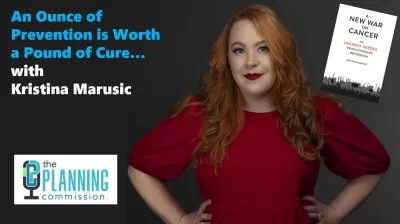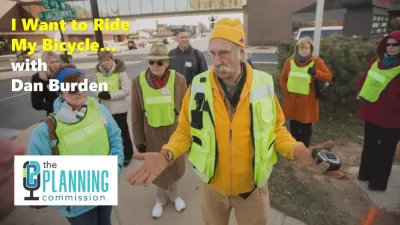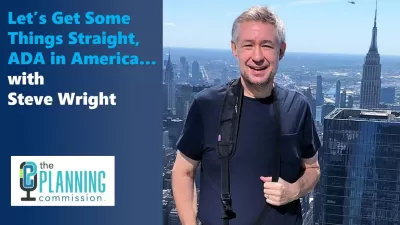Author Kristina Marusic explores her book, A New War on Cancer, with The Planning Commission Podcast.

The word cancer itself often brings horrific thoughts and memories to nearly every American as the chronic disease has touched the lives of countless people. What role does planning play in the exposure of carcinogenic materials to our citizens, and more importantly, how do we stop such exposure from happening altogether? In Kristina’s new book, A New War on Cancer, she touches on the modern causes of cancer and how our built environment is often a culprit. While we as planners often get caught up in land use application or transportation issues, Kristin’a book is a great reminder of how we plan and what we approve can often have profound effects beyond the obvious. It is available through our partners at Island Press.
FULL STORY: Season 3, Episode 6: The Planning Commission Podcast with Kristina Marusic

Trump Administration Could Effectively End Housing Voucher Program
Federal officials are eyeing major cuts to the Section 8 program that helps millions of low-income households pay rent.

Planetizen Federal Action Tracker
A weekly monitor of how Trump’s orders and actions are impacting planners and planning in America.

Ken Jennings Launches Transit Web Series
The Jeopardy champ wants you to ride public transit.

California Invests Additional $5M in Electric School Buses
The state wants to electrify all of its school bus fleets by 2035.

Austin Launches $2M Homelessness Prevention Fund
A new grant program from the city’s Homeless Strategy Office will fund rental assistance and supportive services.

Alabama School Forestry Initiative Brings Trees to Schoolyards
Trees can improve physical and mental health for students and commnity members.
Urban Design for Planners 1: Software Tools
This six-course series explores essential urban design concepts using open source software and equips planners with the tools they need to participate fully in the urban design process.
Planning for Universal Design
Learn the tools for implementing Universal Design in planning regulations.
Ada County Highway District
Clanton & Associates, Inc.
Jessamine County Fiscal Court
Institute for Housing and Urban Development Studies (IHS)
City of Grandview
Harvard GSD Executive Education
Toledo-Lucas County Plan Commissions
Salt Lake City
NYU Wagner Graduate School of Public Service





























